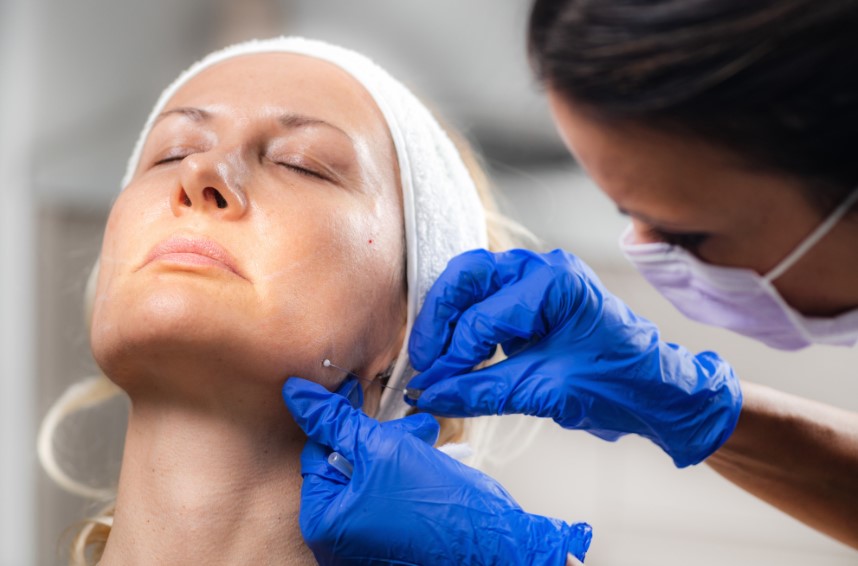Brace yourself for the new year and face it with a smile.
For many people, there’s a simple solution for that. It’s called rejuvenation. And “facelifts” are common, serious, and popular procedures.
While it changes your outer appearance, there’s nothing invasive or painful. All you have to do is pick the kind that’s right for you.
Want to refresh your look? Keep reading to find out about preparing for facelifts. We’ll also cover critical pre-op considerations, including what to discuss with your doctor.
There Are Risks Involved
Depending on the specific procedure, some risks may include infection, which can occur during and after the procedure, leading to swelling, redness, and pain. Scarring, once the process is completed, you may have scars visible on the face. There may be nerve damage after the procedure, resulting in a temporary or permanent loss of feeling in the treated area.
Asymmetry, although the goal of a facelift is to create an even, proportionate look, it may take a lot of work for the surgeon to achieve this goal. There may be some noticeable asymmetry in the result. Bleeding is not uncommon and may occur either during or after the procedure.
Unsatisfactory results, the facelift is not a guarantee of a younger-looking face, and some people may be unsatisfied with the result. An experienced and skilled surgeon should minimize the risk of less-than-desired outcomes.
Have Realistic Expectations
It can help improve the appearance of wrinkles and folds in the face and help to create a more youthful appearance. Yet, it is important to keep realistic expectations in mind when considering a facelift. First, it is not a permanent solution and will not eliminate wrinkles and sagging.
Instead, it can help to improve their appearance. Second, results will vary depending on the individual’s age, health, skin type, and lifestyle habits. Third, discussing expectations with a qualified plastic surgeon is crucial to ensure that you can realistically achieve desired results.
Fourth, discuss any factors that could influence the results, such as the types of facelifts, facelift recovery period, and any possible side effects. Finally, remember that it will not stop the aging process. It will only help to make a face look younger for a limited period.
Find the Best Surgeon
Start by choosing a facelift surgeon in your city or state and note the reviews of their customers. Look for excellent customer service, good value, and proven experience. Read reviews carefully and check the credentials of each doctor.
It’s also essential to consult with your primary care physician to get a referral. Look up the doctor’s history, experience, board certification, and malpractice reports. Schedule consultations with a few of the surgeons you have identified so you can make an informed decision.
When you visit the surgeon, ask questions about their experience, technique, and outcome. Finally, review the cost for the procedure, payment options, and aftercare plans. Taking the time to consider a surgeon’s different aspects will help you find the best surgeon for your Deep Plane Facelift.
Schedule a Consultation With a Surgeon
The best way is to contact their office by telephone or online. Explain to the receptionist why you are nosy about the procedure and ask if the surgeon has any available appointments. Talk to the receptionist to determine if your insurance covers the cost of the visit.
Find out your preferred appointment time when you will need to arrive, and if there are any additional preparation steps you must take beforehand. Some surgeons also require testing before the consultation to ensure you are medically ready for the procedure. Make sure to ask what documents you must bring and what paperwork you must complete in advance.
During the meeting, discuss your situation and ask the surgeon questions regarding the procedure. Be sure to take notes to refer back to later on. Finally, confirm any fees and payment information for the consultation.
Know the Recovery Process
After your surgery, it is common to experience swelling and bruising, which should subside by the end of the week. You may need to wear a facial bandage to help support the proper healing of the incisions. Yet, it is essential to remember to wait to remove the dressing until your surgeon has advised it is safe.
Your doctor may also advise keeping your head elevated for the first few days. You should minimize your activity during the first few days after surgery. You may experience some itching or soreness as you heal, for which you can use cold compresses or recommended painkillers.
After about two weeks, you should be able to resume exercise and other everyday activities. Complete healing will take about two to three months, although most of the swelling and bruising should subside within the first two weeks.
Expect Lifestyle Changes
It can have permanent lifestyle changes, and it is essential to understand what to expect. First, you must plan, as recovery may take several weeks or even months. Be prepared to take pain medications and even take off from work or other activities during this time.
You may also need to limit your physical activities, such as exercise, to avoid making the results of your facelift worse. You may also need to prioritize proper nutrition and lifestyle changes to get the most out of your facelift. Having realistic expectations about the procedure and the lifestyle changes that come with it is essential.
All You Need to Know About Preparing for Facelifts
The “Complete Guide to Preparing for Facelifts: Everything to Know” was an invaluable resource to help navigate the process. Take advantage of the resource the guide provides, and you can feel much more confident about the journey ahead of you.
Why spend more time wondering if a facelift is right for you? Consult with a medical provider to discuss your options and get a professional opinion about what to do next.
If you find this helpful and want to read more great content, check out our latest blog posts now!

